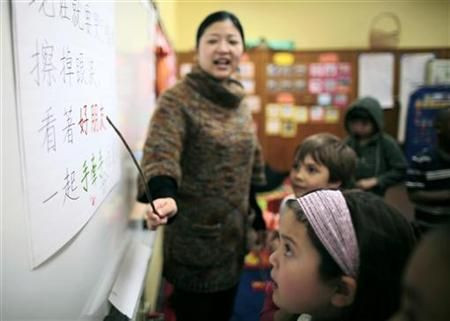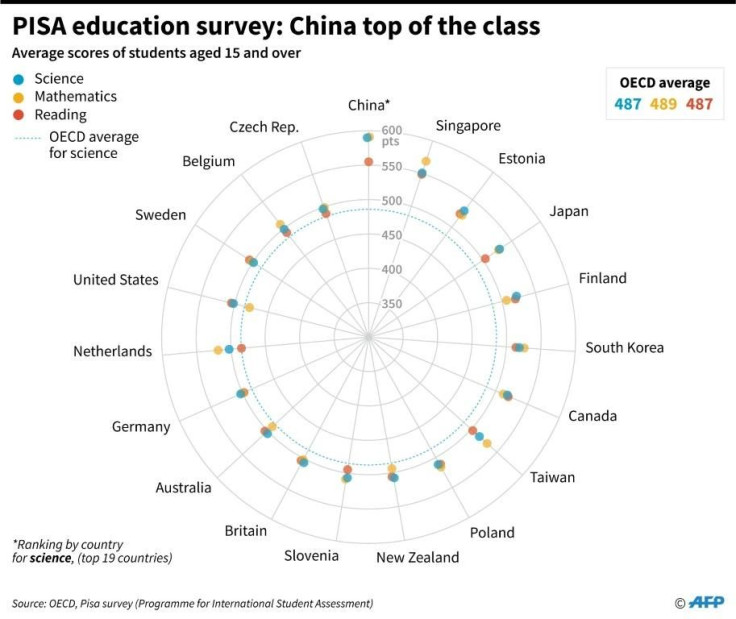What Country Has The Smartest Kids? OECD Study Assessed Reading, Math, Science Skills

A survey by the Organization for Economic Cooperation and Development finds Chinese schoolchildren are the smartest in the world.
The OECD’s triennial PISA – Program for International Student Assessment – finds Chinese students outperforming their peers in science, math and reading, regardless of socioeconomic status.
“The quality of their schools today will feed into the strength of their economies tomorrow,” OECD Secretary General Angel Gurria said earlier this week.
The study assessed 600,000 15-year-old students in 79 countries and found most countries have seen no improvement in student performance since the study was first conducted in 2000 despite increased spending on education. It found a quarter of students had trouble with basic reading concepts.
“It is disappointing,” Gurria said.
The survey, which was conducted in 2018, found a 12% variance in student performance within countries in reading performance, largely the result of socio-economic status. In several European countries, that variance was higher, 17%.
The survey concentrated on reading ability and was delivered by computer.
“The test aimed to assess reading literacy in the digital environment while retaining the ability to measure trends in reading literacy over the past two decades,” the report said in its executive summary.
“Beijing, Shanghai, Jiangsu and Zhejiang (China) and Singapore scored significantly higher in reading than all other countries/economies that participated in PISA 2018. Estonia, Canada, Finland and Ireland were the highest-performing OECD countries in reading.”

Seventy-seven percent of students were able to identify the main idea in a text, considered level 2. The proportion rose to at least 85% in Beijing, Shanghai, Jiangsu and Zhejiang (China), Canada, Estonia, Finland, Hong Kong (China), Ireland, Macao (China), Poland and Singapore.
The country with the highest percentage of top-performing students in at least one subject was South Korea with 26.6% of students performing at level 5 or 6. Mexico had the smallest percentage at 1.1%. The United States had 17.1%.
Boys outperformed girls in math, but girls outperformed boys in science and reported much more satisfaction in reading.
Thirteen countries saw improvements in math while three – Malta, Romania and Taipei – saw declines. Seven countries saw improvements in reading, math and science while a like number saw a decline in all three subject areas.
“In spite of socio-economic disadvantage, some students attain high levels of academic proficiency. On average across OECD countries, one in 10 disadvantaged students was able to score in the top quarter of reading performance in their countries [known as academic resilience], indicating that disadvantage is not destiny,” the report said.
“In Australia, Canada, Estonia, Hong Kong [China], Ireland, Macao [China] and the United Kingdom, all of which score above the OECD average, more than 13% of disadvantaged students were academically resilient.”
World Population Review notes different countries come out on top depending on the factors assessed. The Intelligence Capital Index ranks the United States as the smartest country, followed by the United Kingdom and Germany. That compares with a study by British Professor Richard Lynn, whose IQ tests of residents of 80 countries found Hong Kong and South Korea ranking first and second.
© Copyright IBTimes 2024. All rights reserved.






















